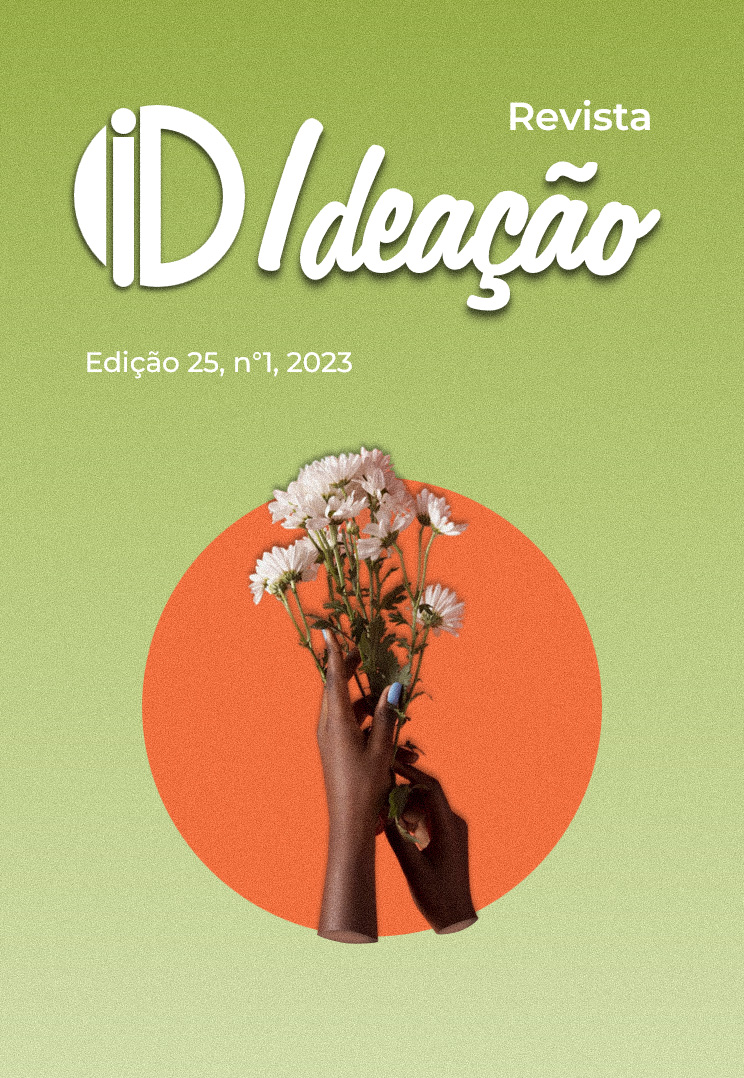Em busca de uma pedagogia culturalmente sensível
uma alternativa ao combate ao preconceito linguístico em contexto fronteiriço
DOI:
https://doi.org/10.48075/ri.v25i1.30174Palavras-chave:
Alunos brasiguaios, preconceito linguístico, escolaResumo
Na região da Tríplice Fronteira (Brasil, Paraguai e Argentina), é muito comum a presença de alunos brasiguaios nas escolas brasileiras, sobretudo, em Foz do Iguaçu (PR). Devido à visão de homogeneização linguística do português, adotada pela escola brasileira, esses passam a ser estigmatizados socialmente. Diante dessa realidade, este texto tem por objetivo discutir teoricamente como o preconceito linguístico direcionado aos alunos brasiguaios se constitui um fenômeno ideológico e como é possível superar tais práticas segregadoras. Este estudo tem abordagem qualitativa, inserido no âmbito da Linguística aplicada, e recorreu à pesquisa bibliográfica. Os resultados revelam que o preconceito linguístico vivenciado pelos brasiguaios é ideológico, marcado por visões de mundo e ideologias estereotipadas, as quais impactam de maneiras consideráveis esses sujeitos que já vivem outras situações desiguais, como as socioeconômicas. Trata-se de prática segregacionista que prega a incompetência dos falantes provenientes das camadas populares, sendo, portanto, um mecanismo de ideologia linguística, que postula hierarquia linguística/social. Nas escolas de fronteira, esse quadro é agravado, sobretudo, pela falta de práticas pedagógicas que sejam sensíveis à heterogeneidade linguística que compõe as salas de aulas. Nesse sentido, a Sociolinguística Educacional, a partir de uma visão da Pedagogia Culturalmente Sensível, torna-se um caminho profícuo para o trabalho com a Língua Portuguesa, haja vista que é uma abordagem que rompe com o ensino exclusivo de regras gramaticais, promovendo o uso de recursos linguísticos/comunicativos e ampliando o desenvolvimento da competência comunicativa dos alunos por meio da valorização dos saberes acumulados culturalmente.
Downloads
Publicado
Como Citar
Edição
Seção
Licença
Copyright (c) 2022 Direitos partilhados conforme licença CC BY-NC-SA 4.0

Este trabalho está licenciado sob uma licença Creative Commons Attribution-NonCommercial-ShareAlike 4.0 International License.
Política para Periódicos de Acesso Livre
Autores que publicam nesta revista concordam com os seguintes termos:
1. Autores mantém os direitos autorais e concedem à revista o direito de primeira publicação, com o trabalho simultaneamente licenciado sob a Licença Creative Commons Attribution que permite o compartilhamento do trabalho com reconhecimento da autoria e publicação inicial nesta revista.
2. Autores têm autorização para assumir contratos adicionais separadamente, para distribuição não-exclusiva da versão do trabalho publicada nesta revista (ex.: publicar em repositório institucional ou como capítulo de livro), com reconhecimento de autoria e publicação inicial nesta revista.
3. Autores têm permissão e são estimulados a publicar e distribuir seu trabalho online (ex.: em repositórios institucionais ou na sua página pessoal) a qualquer ponto antes ou durante o processo editorial, já que isso pode gerar alterações produtivas, bem como aumentar o impacto e a citação do trabalho publicado (Veja O Efeito do Acesso Livre).
Licença Creative Commons
Esta obra está licenciada com uma Licença Creative Commons Atribuição-NãoComercial-CompartilhaIgual 4.0 Internacional, o que permite compartilhar, copiar, distribuir, exibir, reproduzir, a totalidade ou partes desde que não tenha objetivo comercial e sejam citados os autores e a fonte.


